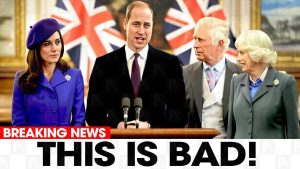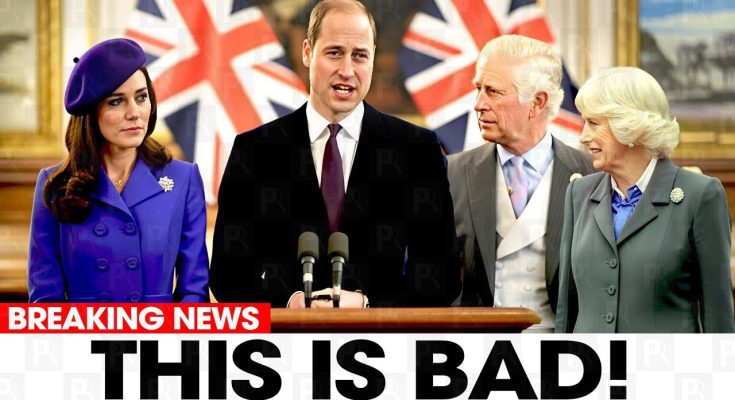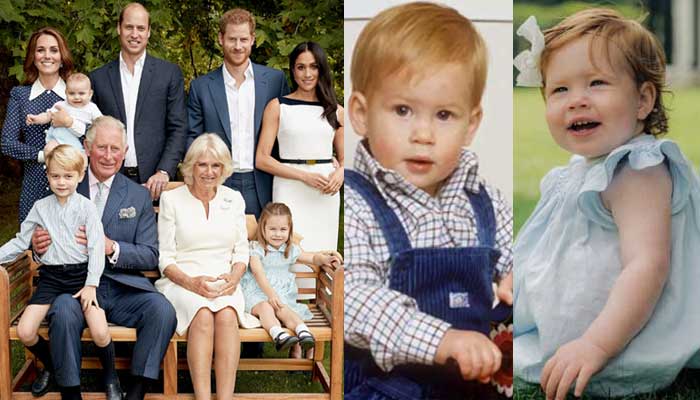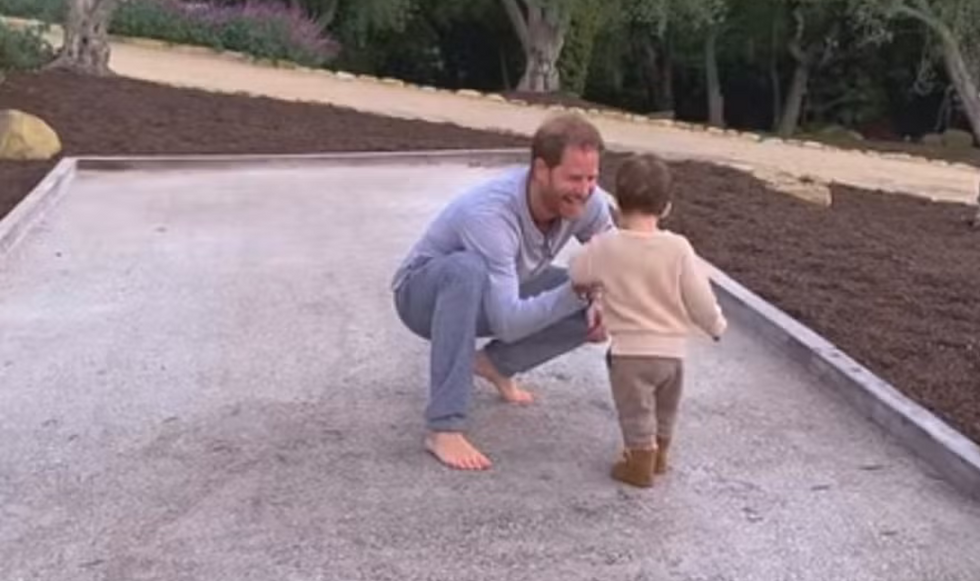Shocking Royal Decision: Why King Charles Denied Archie and Lilibet Their Titles

The British royal family usually avoids surprises. Tradition is its shield, silence its weapon. But this time, the palace has broken both. In an announcement that stunned the world, King Charles confirmed that Prince Harry and Meghan Markle’s children, Archie and Lilibet, will not be granted royal titles.
What might sound like a technicality is, in fact, a decision that cuts to the very heart of the monarchy. For in the royal world, titles are not just fancy names. They are shields of protection, symbols of legitimacy, and keys to belonging. Removing them is not a formality. It is exile.
A Palace Shaken
At first, the decision looked like a continuation of old wounds: Harry and Meghan stepping away from duties, interviews that shook the monarchy, family fractures that never healed. But now, insiders say the King’s ruling came after something far more explosive.
According to documents and whispered leaks, Archie and Lilibet were reportedly born through surrogacy — a detail Harry and Meghan never formally shared with the palace. In ordinary families, such choices are private. But in royalty, where succession laws hinge on birth and bloodline, secrecy is seen as betrayal.
For centuries, royal babies have been born under watchful eyes. Midwives, doctors, and courtiers ensured the line of succession was beyond question. Transparency was the tradition; secrecy, unthinkable. To learn the truth not through family trust but through private files left King Charles deeply shaken.
Tradition Versus Family
Behind palace doors, the King wrestled with a brutal choice. Grant the children titles, and risk weakening an institution that rests on centuries of clear lineage. Or deny them, and risk tearing the family apart.
He chose tradition. Archie and Lilibet, once destined to be His and Her Royal Highness, will now grow up as ordinary children in the eyes of the monarchy. No titles. No protection. No official place in the royal circle.
The palace’s message was unmistakable: blood may be thicker than water, but not thicker than the crown.
Harry and Meghan’s Fury
In Montecito, the reaction was explosive. Friends say Prince Harry was furious, feeling the decision was not only a slight against him but an attack on his children. Meghan, who has long carried the scars of rejection by the royal household, saw it as yet another betrayal.
Lawyers were called. Phone lines burned from California to London. Yet the outcome remained the same. The King’s decision was final.
To Harry and Meghan, the move was more than punishment. It was exile written in legal ink. It declared that forgiveness was not coming.
Rules Older Than Love
To understand why the palace acted so decisively, one must look at the rules that shape royal life. The monarchy is not built only on pageantry; it is built on law.
The Act of Settlement (1701), the Succession to the Crown Act (2013), and the letters patent of King George V (1917) all define who is royal. In simple terms, children born to the male line of the monarch are princes and princesses. That should have applied automatically to Archie and Lilibet when Charles ascended the throne.
But tradition has always demanded certainty. For hundreds of years, births were witnessed and recorded to prove without doubt that an heir was truly of royal blood. Without that, the line of succession risks cracks that no crown can hide.
A Cruel Gamble
The King’s decision has drawn fierce debate. Supporters argue he had no choice — duty to the crown comes before even his love as a grandfather. Critics call it cruel, punishing two innocent children for choices they never made.
Some royal historians compare this moment to 1936, when King Edward VIII abdicated to marry Wallis Simpson. Then, too, love clashed with tradition, and tradition won. But this time, the impact spreads across generations. A line has been drawn not only between father and son, but between cousins — George, Charlotte, and Louis raised inside the fold, Archie and Lilibet left outside.
A Family Divided
What does it mean for the Sussex children? They are still sixth and seventh in line to the throne by blood. But without titles, they live in a strange limbo — visible yet unprotected, royal by name yet denied the rights that come with it.
For the public, the message is equally clear. The monarchy will bend only so far. It will modernize, it will soften, but it will not rewrite its oldest rules to accommodate Harry and Meghan.
And for King Charles, it is a gamble. By protecting tradition, he may preserve the crown. But in doing so, he risks breaking the family thread that has always bound the monarchy to the people.
The Final Question
Is this the end of Harry and Meghan’s royal chapter? Or merely the latest round in a battle between love, freedom, and tradition?
The palace remains silent beyond its formal announcement. But outside its gates, the noise is deafening. And in California, a young boy and girl will grow up without the titles their bloodline once promised them — a decision that may shape not only their future, but the future of the monarchy itself.




